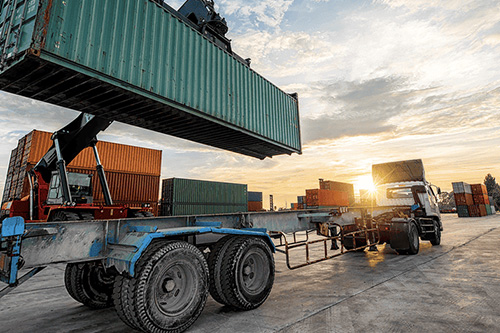Menu
- Home
- Drivers
- Capabilities

logistic experts
- About
- Contact Us
- Get Quote





For truck drivers and those in the trucking industry, sustainability is an increasingly important concern. In an effort to reduce their carbon footprint, there are a variety of strategies that can be employed. Fuel efficiency is key and there are several opportunities that can be taken to reduce fuel consumption.
For companies, practicing sustainability not only reduces their carbon footprint but also helps their bottom line by cutting operating costs. Utilizing modern technology such as GPS-equipped vehicles allows companies to track driver performance and fuel usage in real-time which can help identify areas of improvement in terms of route planning or vehicle maintenance schedules that can further improve fleet efficiency and reduce total fuel consumption.
Truck drivers can make a meaningful impact on the environment by taking proactive steps to reduce their carbon footprint. Conserving fuel and decreasing harmful emissions is possible by driving at posted speed limits. Maintaining proper tire inflation levels helps keep friction from underinflated tires to a minimum, leading to improved fuel economy. Regular engine maintenance is paramount for optimal gas mileage: buildups and breakdowns result in higher fuel consumption and more emissions. Smooth shifts while in transit ensure efficient use of fuel, which equates to fewer emissions into the environment. Doing your part doesn’t have to be difficult or complicated; being mindful about how you drive is an easy step in the right direction.
In today’s world, companies are increasingly realizing the importance of sustainability and environmental responsibility. As businesses seek to reduce their carbon footprint and minimize their impact on the environment, they must take a holistic approach that goes beyond fuel conservation initiatives.
Waste management is a critical aspect of sustainability. Companies generate a significant amount of waste, including packaging materials and used parts or materials. By recycling these items, reusing packing materials where feasible, and delivering goods electronically whenever possible, companies can reduce emissions from trucks while cutting operational costs by eliminating unnecessary expenses related to waste product transport and storage.
Recycling used parts or materials saves money while reducing environmental impact. Businesses can recycle them into new products or use them for other purposes instead of disposing of them in landfills or incinerators. Reusing packing materials also reduces waste and cuts costs by extending their lifespan before recycling or disposal.
Sustainability has become an important component of the trucking industry. It not only helps protect our environment but also helps businesses increase profits by improving efficiency throughout their supply chain operations. By practicing responsible driving techniques and investing in efficient technologies that maximize vehicle use while minimizing emissions and waste production, companies will be well on their way towards achieving environmental friendliness through sustainable practices within the trucking industry today!

M-F 7AM–5PM

M-F 7AM–5PM
Great Plains Transport is a North Dakota trucking company featuring refrigerated freight, cargo, and dedicated transportation services while offering long haul OTR truck driving jobs in 48 states.
Great Plains Transport Inc
Address: 200 1st Ave SE, Mapleton, ND 58059
Phone: (701) 281-3006

